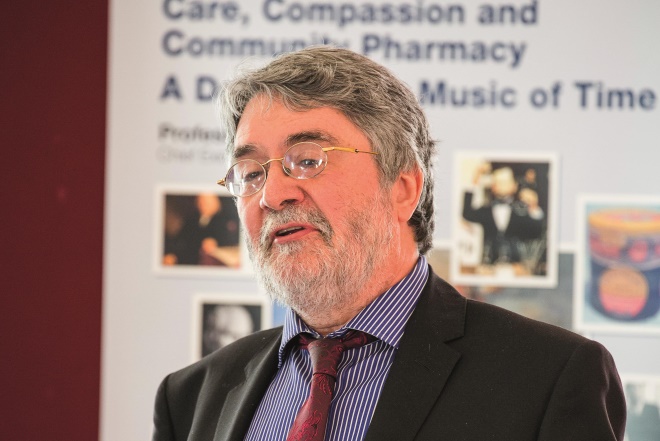
Shutterstock.com

Courtesy of UCL
David Taylor, professor emeritus of pharmaceutical and public health policy at the University College London School of Pharmacy, said strategies based on early diagnosis and prompt access to treatment should improve treatment in the future
Efficacy is the greatest concern for patients with multiple sclerosis (MS) when they are considering treatment options, according to an international survey of more than 1000 people.
The survey, carried out by Bournemouth University and the consultancy Spoonful of Sugar, which works with medicines-related behaviour, found that slowing disease progression, along with improving symptoms and reducing relapses, trumped practical considerations, such as how and when a medication is taken in patients’ priorities.
Side effects and the possible long-term harms from medication were also important considerations for people with MS.
The survey included 1,040 patients living with MS in Australia, Canada, France, Germany, Italy, Spain, Sweden, the UK and the US, and aimed to explore their priorities and expectations from treatment.
It found that some people decided not to have medical treatment, even though disease-modifying therapies (DMTs) are available. The main reasons for this were concerns about the negative impacts of the treatment, such as side effects, as well as a lack of belief in treatment necessity.
When asked about their priorities, the results highlighted the impact of fatigue on the lives of people living with MS, with this most commonly cited as a symptom they would like treatment to reduce. Overall, patients wanted greater independence, including maintaining their mobility and alleviating bladder and bowel issues.
“All medicines carry risks and there are at present uncertainties about the long-term value of newer MS therapies,” said David Taylor, professor emeritus of pharmaceutical and public health policy at the University College London School of Pharmacy, who authored one of two reports based on the survey results.
“But strategies based on early diagnosis and prompt access to effective treatment should provide increasing future benefit, especially when accompanied by adequate investment in areas like rehabilitation and social care aimed at goals like helping people with MS stay in work and enjoy a fulfilling social life.”


